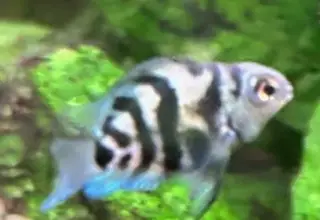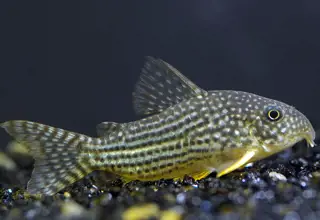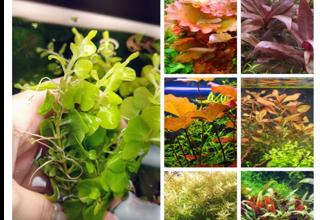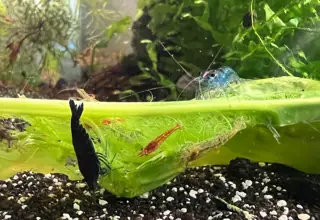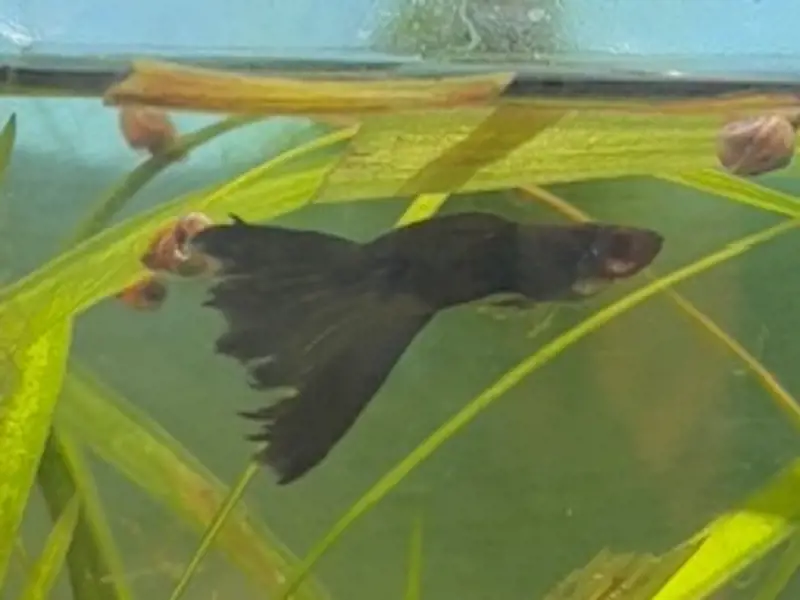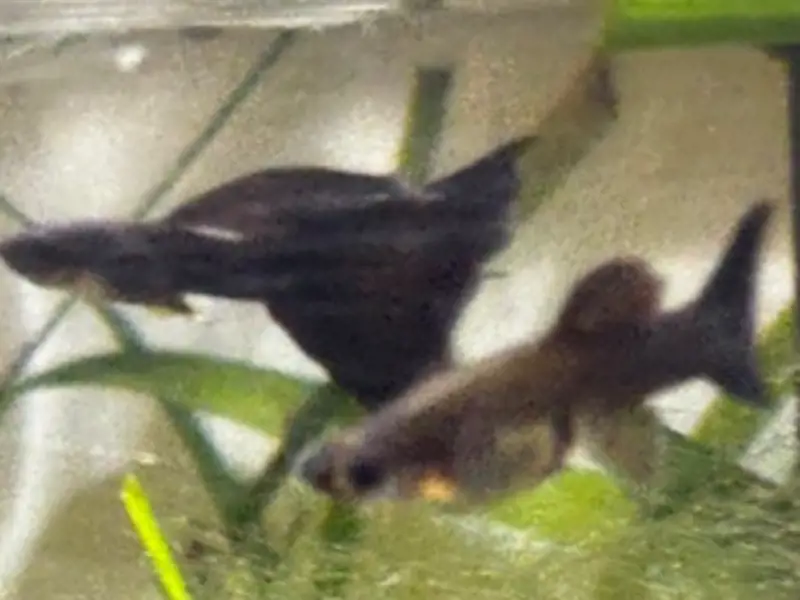10 Best Shrimp for a Betta Tank
Posted by on 08/14/2023
Betta fish are some of the most common freshwater species in the aquarium hobby. Whether you have a blue-colored betta, or the rare galaxy koi, there are plenty of ways to upgrade your aquarium to build a more well-rounded ecosystem.
While betta fish are known to be aggressive fish, it is possible to keep these fish in a community tank with other species, and some potential candidates include freshwater shrimp, African dwarf frogs, and more. In this post, we’re going to recommend 10 of the best shrimp to coexist with your betta fish.
Know the Risks
Hobbyists will come across a wide variety of opinions online when keeping betta fish with shrimp. While we've successfully kept these two types of species in some of our tanks, hobbyists should be aware that bettas are predatory fish, and temperament does vary from fish to fish.
Before venturing into keeping shrimp with bettas, hobbyists should either have a well-planted tank or provide plenty of artificial hiding spots. The larger the tank, the less likely you'll notice aggressive behavior from your betta. You'll also want to have a backup plan in case you notice any predatory behavior from your betta fish. Hobbyists will often have a nano tank at the ready in case they need to relocate any of their shrimp.
Our Top 10
Now that you've learned the risks and have supplied plenty of hiding spots for your shrimp, here are 10 great options.
Amano Shrimp
Known for their algae-eating abilities and named after famous aquascaper Takashi Amano , amano shrimp are a favorite among freshwater hobbyists. These shrimp will munch on any available algae in the tank, and will even eat the notorious black beard algae.
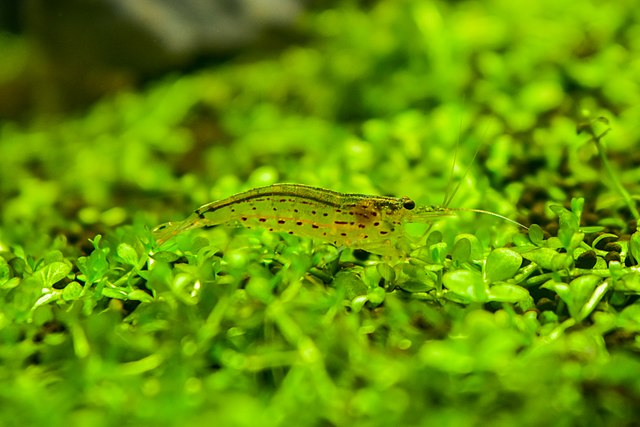
Red Cherry Shrimp
Perhaps the most common shrimp in the hobby is the Red Cherry Shrimp (scientific name: Neocaridina davidi.) These shrimp are graded - meaning the shrimp that show off the brightest colors are assigned a rating, with "AA" being one of the highest marks. Whether you're keeping low or high-grade red cherries, they are an excellent choice for a community tank.
👉 Shop High Grade Bloody Mary Shrimp ($60) from PrawnLabs
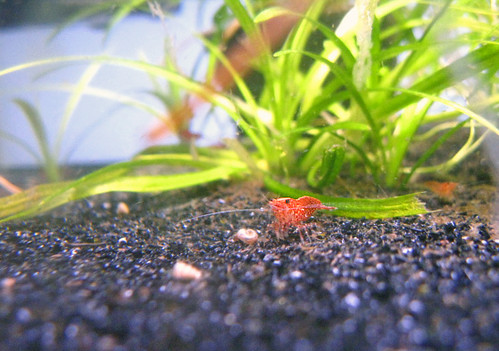
Blue Dream Shrimp
One of the most popular red cherry color morphs is known as Blue Dream Shrimp. These shrimp have been crossbred with other color variations of Neocaridinia davidi to produce a deep blue coloration. These shrimp are commonly mistaken with blue velvet shrimp.
👉 Shop Ocean Blue Neocaridina Shrimp ($45) from PrawnLabs
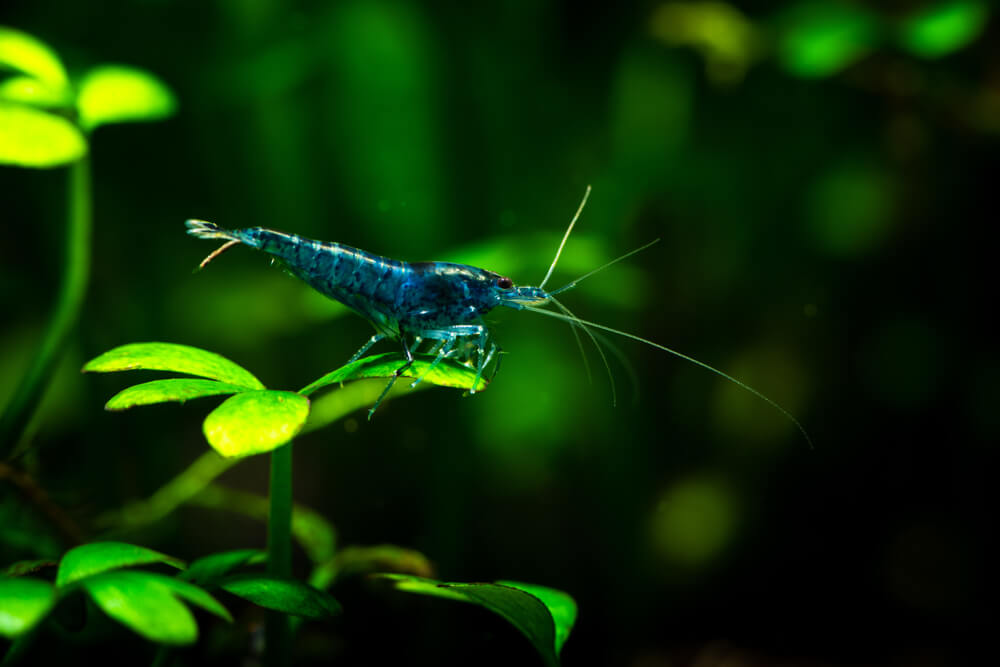
Green Jade Shrimp
Green Jade Shrimp have a green coloration that can function as a form of camouflage in a planted aquarium with a lot of foliage. These shrimp can demonstrate a lime green or forest green coloration, and high-grade versions of the species will show little translucency.
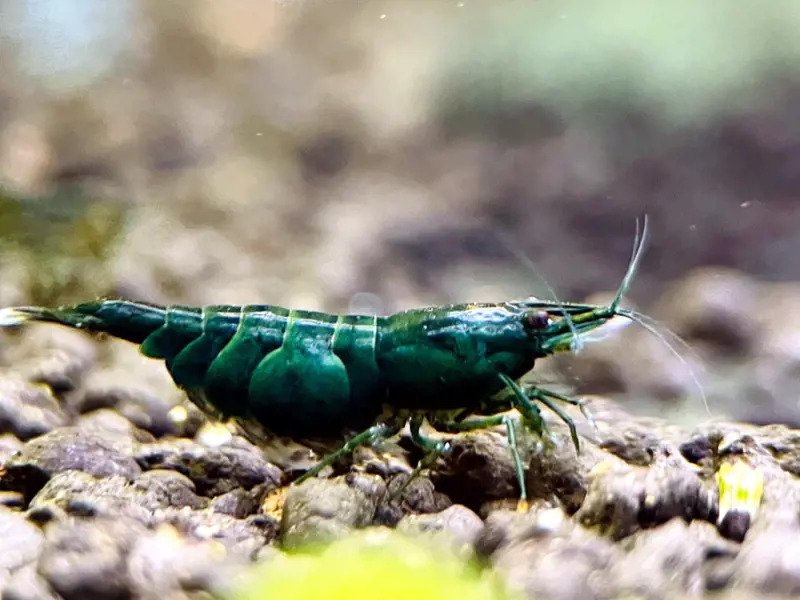
Orange Pumpkin Shrimp
Another common Neocaridina davidi color morph is known as the orange pumpkin, and this freshwater invert demonstrates a color that contrasts nicely with darker-colored aquarium substrates.
Orange Pumpkins are typically easy to find and often go up for sale on our marketplace.
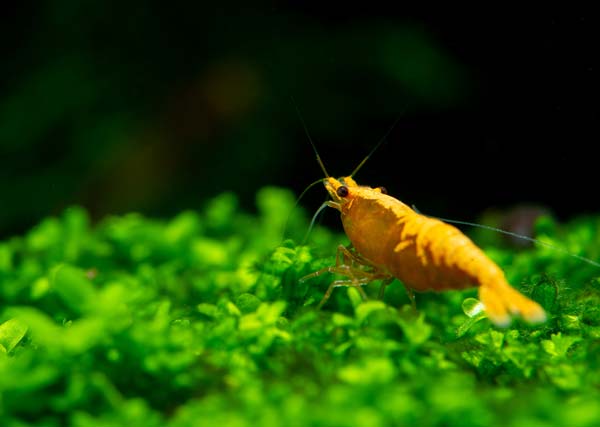
Ghost Shrimp
With an appearance similar to an Amano shrimp, ghost shrimp (scientific name: Palaemon paludosus) are native to the United States's Appalachian Mountains, and are known to be a bit more aggressive when compared to Neocardinia species.
These shrimp can grow to be much larger than the other shrimp mentioned on this list, with adults reaching a full inch in size.
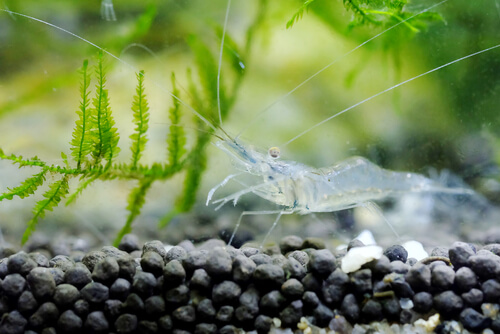
Orange Rili (with caution)
Aquarists new to the hobby may mistake the translucent band on an Orange Rili to be a visual oddity rather than a sought-after feature, however, hobbyists have been cross-breeding shrimp to produce the unique clear band seen on the Orange Rili for decades.
Orange Rili shrimp are often more expensive when compared to more common Neocardinia color morphs such as the Red Cherry, and hobbyists should take caution before introducing these shrimp into a betta tank.
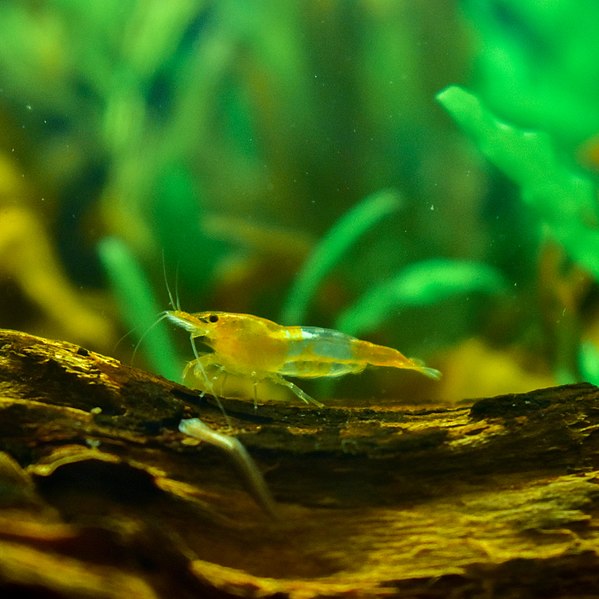
Crystal Red Shrimp (with caution)
Crystal Red Shrimp should only be cared for by experienced hobbyists, as these fish are highly sensitive to stress and imperfect water conditions. With a preference for soft water, you'll likely need to purchase or create your own RO/DI water just to sustain these shrimp.
Hobbyists that are considering pairing these with a betta should have a backup plan in case signs of aggression are exhibited from the betta.
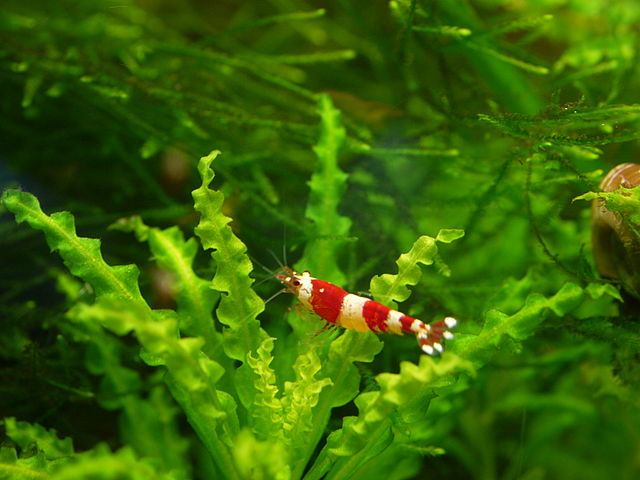
Crystal Black Shrimp (with caution)
Crystal Blacks share identical care requirements as the related Crystal Reds and a similar recommendation follows. We strongly suggest having a well-established tank that you can transfer these shrimp into if you see signs of aggression from your betta fish. Plenty of hiding spots and a pristine environment will improve your odds of housing both of these species together.
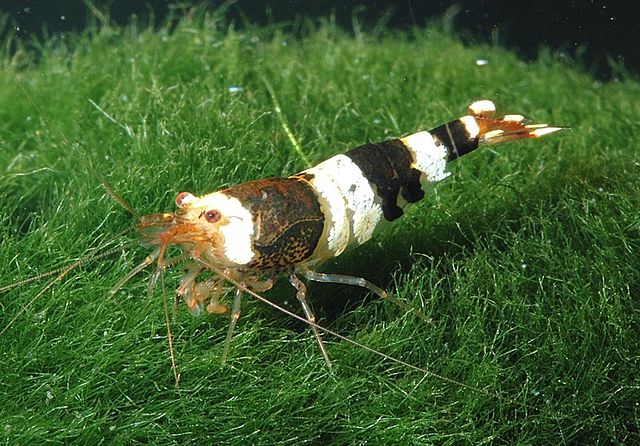
Sulawesi Shrimp (with caution)
Native to Indonesia, Sulawesi Shrimp are hard to come by, and hobbyists should monitor the species for stress closely after adding them to a betta fish tank. Luckily for hobbyists, Sulawesi can live comfortably in hard water environments, but if aggressive signs are shown from the betta fish, they should be transferred into an established aquarium.
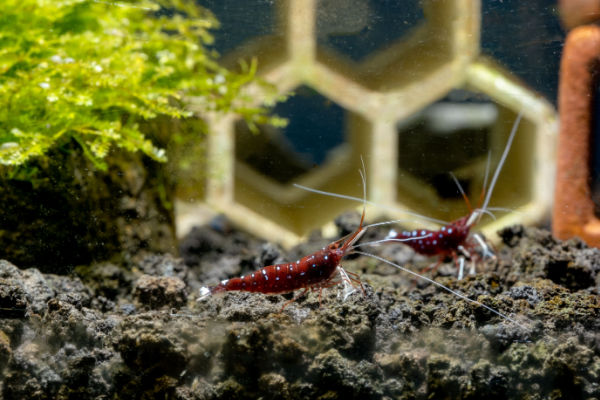
Conclusion
As you can see, adding shrimp to a betta tank is something that should be done with caution. Providing a large aquarium with plenty of hiding spots will reduce the chances that you'll need to move your fish or shrimp into a tank of their own.
Now that we've covered some suitable options, do you plan on introducing these species in an aquarium? Let us know in the comments, and be sure to visit our marketplace where you may even find some of these unique inverts for sale.
